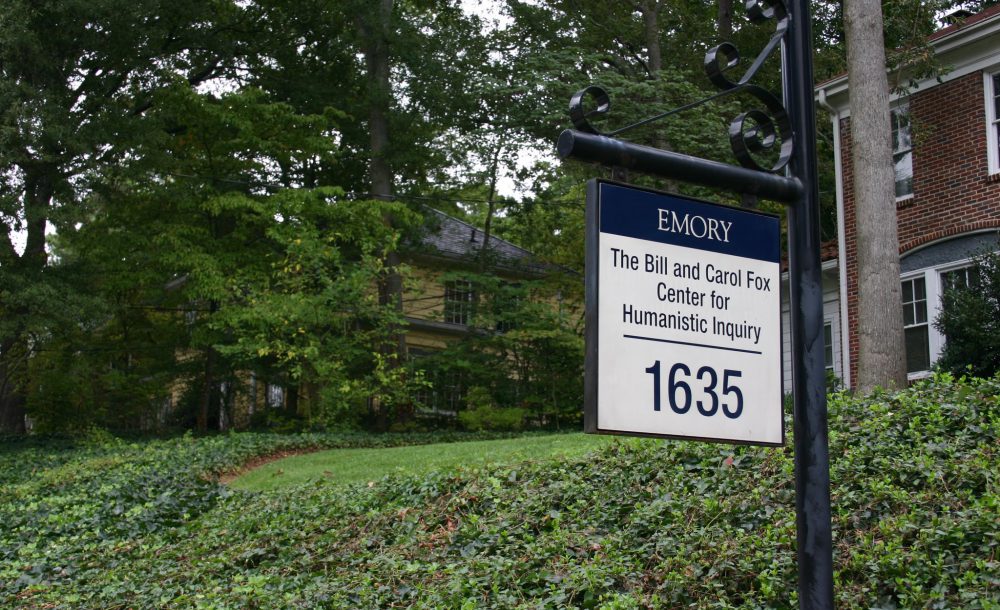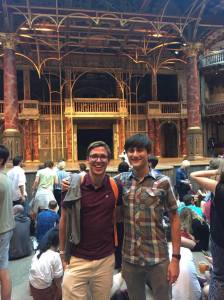
by Chris Batterman 19C, Music
Halle/Fox Center Global Research Fellow
When I arrived in Brazil to do the archival portion of my thesis research, I thought I knew more or less of what to expect. Before travelling, I had studied much of the scholarship that had already been written on Brazilian composer Antônio Carlos Gomes, the subject of my study. I had familiarized myself with his biography, his political views, and his music. Because my thesis looks at the racial and ideological implications of the composer’s operas, my time in Brazil was to be spent combing through the composer’s numerous correspondences with his elite contemporaries, looking for any mentions of race and politics. Of course, there were plenty. I came across numerous correspondences with prominent Brazilian abolitionists, as well as letters in which he discussed political matters with his friends and family. These finds came as no surprise to me—Gomes’ political involvement has been written about before, so I expected to learn more about it through my study of his correspondences. What I did not expect, however, was the place that Gomes holds in the Brazilian public conscious, one that celebrates an image of the composer that is seemingly at odds with the Gomes I encountered in the archives.
When I arrived in Campinas, São Paulo, I took a walk through the downtown area (Centro) on my first day to familiarize myself with the area. I was immediately stunned by a huge stature of the composer in the center plaza, and subsequently surprised by his tomb, a large mausoleum-like structure that sits firmly in the middle of the city. Monuments like these can be found in other major Brazilian cities, such as São Paulo and Rio de Janeiro. All of them praise the “grande maestro” (great composer) that was Carlos Gomes, claiming him and his success abroad as a victory for all of Brazil. This celebration of Gomes was echoed by the Brazilians I talked to, many of whom spoke highly of the composer and his importance to Brazilian art. Naturally, I began to wonder. How could the composer, who in his letters and correspondences spoke so negatively of the Brazilian Republic (founded in 1889) and died with a deep disdain towards Brazil (he described it as having dealt him “great injustices”), become such a national symbol for modern day Brazilians? The opening of his seminal opera Il Guarany, for example, is the opening song of the daily government radio station.
As I continued my research in the Brazilian archives, digitizing his correspondences and original musical manuscripts, I kept encountering people who saw Gomes as a national hero of sorts, even though Gomes longed for nothing for than to be a “European” opera composer (his pieces were composed for Milanese premieres). In considering these current perceptions of the composer, I began to examine the early historiography of the composer and his music. Early musicologists wrote about Gomes as the progenitor of Brazilian art music. They positioned him as first in a long line of Brazilian composers that would write in a nationalist style. What is peculiar about this, however, is that Gomes’ musical style could hardly be considered national—passages from his pieces sound like they could be lifted directly from Verdi or Rossini operas. What was clear to me was the immense hagiography that went into the construction of Gomes’ image in the Brazilian public consciousness. Early scholars (and even some today) glossed over Gomes’ political leanings, categorizing him as unequivocally “apolitical.” In these portrayals of Gomes, he was lionized into the pantheon of Brazilian composers and rendered as a national symbol.
My thesis, which looks at the Brazilian composer through a more critical lens, joins the recent wave of Gomes scholarship that pushes back against hagiography that early historiography engaged in. Instead, my thesis considers the composer’s operas in a deeply political light, examining his engagement with racial and national ideologies and his constructed image(s) of Brazil and of “Brazilianness.” I argue that the “apolitical” characterizations of Gomes made by early scholarship, that which projected him into the national public consciousness, do not allow for a holistic consideration of the composer’s place in Brazilian history. Instead, I present a reading of Gomes in which his art and politics are inextricably linked. Broadly, this could be said for all music. Music goes beyond its sounding space and has very real, humanistic implications, for both the artist and the listener. I am just using Gomes as a case study to make this point.







